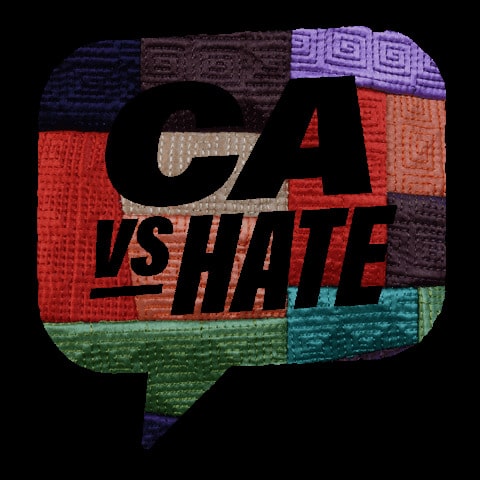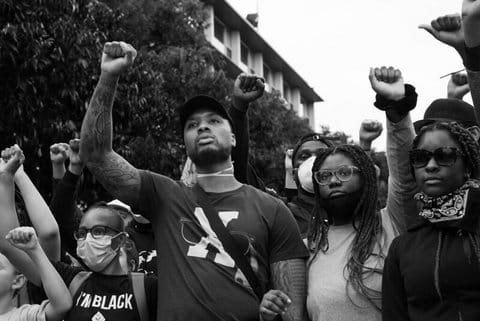
31 May Panel Discusses Building Bridges in a Time of Increased Hate and Polarization

By Michael J. Fitzgerald and Danielle Parenteau-Decker
A panel of community activists, organizers and journalists on Tuesday discussed how to build bridges among people and groups in this era of polarization and hate.
The discussion was part of the Contra Costa Pulse’s Stop the Hate series about groups and individuals working to lessen tensions and prevent hate incidents and crimes.
The panel met via Zoom for an informal, freewheeling conversation about division and unity across California.
“We are hosting this community discussion to hear from young people about how racism, hate speech and intolerance have impacted them, their families and their communities,” Pulse publisher Malcolm Marshall said. Getting ideas on how to bring people together across racial lines was also a major motive for the gathering.
Panelists discussed how current events, including the Israel-Hamas war, have stoked hate in their communities.
“The Israel-Hamas conflict has just brought up so much — just like a different kind of world of hate,” said Jazmin Alvarado Villegas, news editor of The Collegian, the student newspaper at Fresno State.
Samira Hassan, a community activist, poet and aspiring journalist in the City Heights area of San Diego, said Islamophobia has become “a common issue” in her community.
>>>Read: ‘The Last Bit of Solace’: Disaporic Palestinians Use Music to Bring Support
Fe Aguilar, a writer for Voices of Monterey Bay, described an “incident of Islamophobia” in which a white man allegedly harassed and assaulted two “visibly Muslim” girls under 21 who had written “Free Gaza” on a sand dune on which people often write messages.
“The one he specifically assaulted and put his hands on was 13 years old,” she said. And the man has accused the girls of “lying, even though it’s on video” and called them “Hamas supporters, terrorist supporters.”
“It was just really awful to see the way that he tried to demonize them and paint himself, a grown man who’s at least 40 years old, as a victim,” she said.
Aguilar also said her hometown of Salinas is “so isolated” with a population that is 90% Mexican, which drives prejudice.
“We’re very ignorant about other cultures. People are extremely racist, even to other Mexicans — if you’re Indigenous Mexican, other Mexicans will be just awful to them,” she said. “They still speak their languages, which is incredible, and they’re targeted for that. They’re called names. They’re called awful things, like the most racist things.”
>>>Read: ‘A Kind of Medicine’: Indigenous People March in Santa Rosa to Remember the Missing and Murdered
Alvarado Villegas said there are parts of Fresno where “people look at you weird” if you speak Spanish or have brown skin, and “it’s always been like that.”
Ana Tellez-Witrago of Richmond and Carmen Gonzalez of Los Angeles said hate from politicians has given credence to hate among regular people.
Gonzalez, a reporter for Boyle Heights Beat, said her community is still feeling the effects of the 2022 incident in which three L.A. City Council members and a union leader were caught on leaked audio saying racist and otherwise disparaging things about Black, Indigenous, Armenian, Jewish and gay people.
One of those four people still holds their position of power: council member Kevin de León.
“Even President Joe Biden said that he should resign, and he didn’t,” Gonzalez said. “Since he didn’t step down, he was removed from all the committees.”
That meant that “this poor, low-income community didn’t have representation,” she continued, referring to Boyle Heights, which de León represents.
She connected the scandal to an incident in which someone told her mother, who only speaks Spanish, to speak English “because we’re in America.”
“When you have representatives that allows this type of conversations to happen and speak so freely like this and then don’t take accountability, then you have this,” Gonzalez said.
>>>Read: Hate on the Rise, Politics Partly to Blame
Tellez-Witrago said the political climate makes her worry most for LGBTQ+ people and immigrants.
Tellez-Witrago, a Pulse reporter, pointed to the hundreds of pieces of anti-LGBTQ+ legislation introduced or passed across the U.S.
“And with that has come an increase in hate crimes towards them” as well as “violence that has happened towards our trans community because of folks that have a national platform” to spread hate.
Even living in a diverse community, she said she fears that the anti-immigrant rhetoric she hears in political campaigns — coupled with a lack of resources — will create a feeling among people that “we can’t share anymore.”
Other panelists also spoke about how the feeling there is not enough to go around has increased divisions and violence.
“While … I don’t see a rise in necessarily hate violence like that here, I do see a lack of people talking to each other with opposed views,” said Jose Cordon, a poet laureate and community organizer in Antioch. That combined with not having access to resources “will probably lead to a lot more violence.”
Alex Toris, a neighborhood and community team coordinator for Oakland’s Communities United for Restorative Youth Justice, said the main things he sees driving violence are lack of resources and lack of community.
>>>Q&A: Oakland’s CURYJ Combats Hate Through Community Building and Cultural Unity
He said there needs to be “cultural exchanges” to build community so that people are less likely to victimize others because “it would be a lot harder to rob someone that reminds me of my elders” or someone you’ve worked with or gotten to know.
Panelists said they’re making an effort to spend time with, speak to and get to know different people who aren’t like them or are outside their usual circles.
“I’m just shutting up and listening,” Gonzalez said.
Alvarado Villegas said she used to be close-minded and have the attitude that “if it doesn’t affect me, it doesn’t affect me” but has since come to realize that’s not true. Now, she tries to put herself in other people’s shoes to see their perspective and have empathy for them.
“Everyone has a story to tell. Everyone has experiences you could learn from,” Hassan said. “All you got to do is just listen.”
A video of the discussion is available for viewing on the Contra Costa Pulse Facebook page.
This resource is supported in whole or in part by funding provided by the State of California, administered by the California State Library in partnership with the California Department of Social Services and the California Commission on Asian and Pacific Islander American Affairs as part of the Stop the Hate program. To report a hate incident or hate crime and get support, go to CA vs Hate.






No Comments